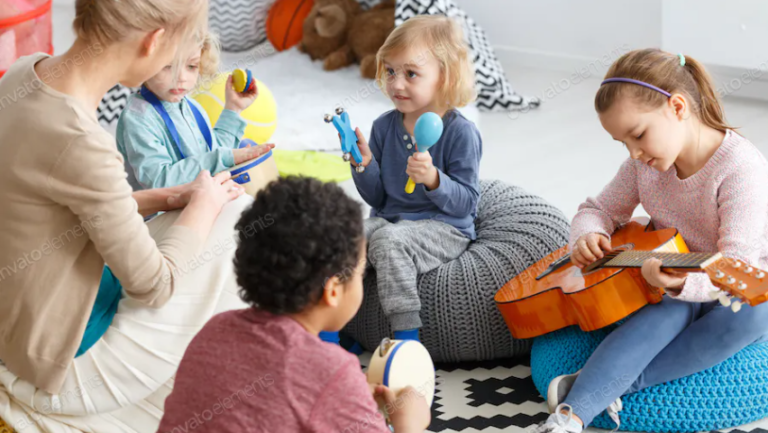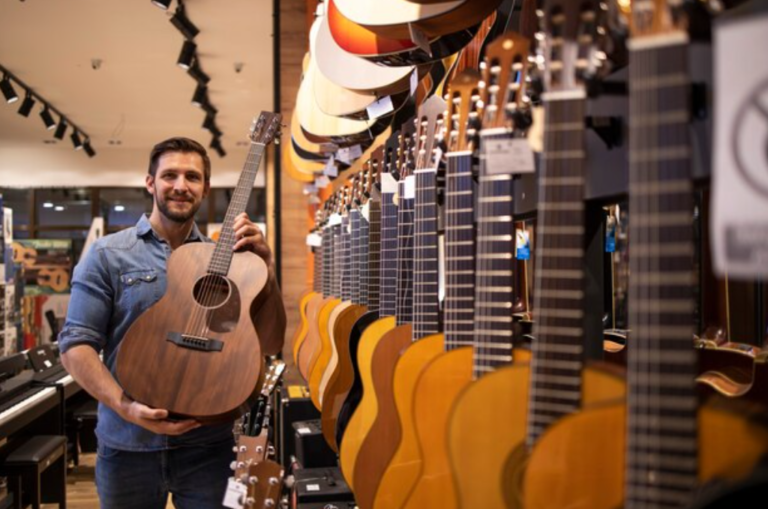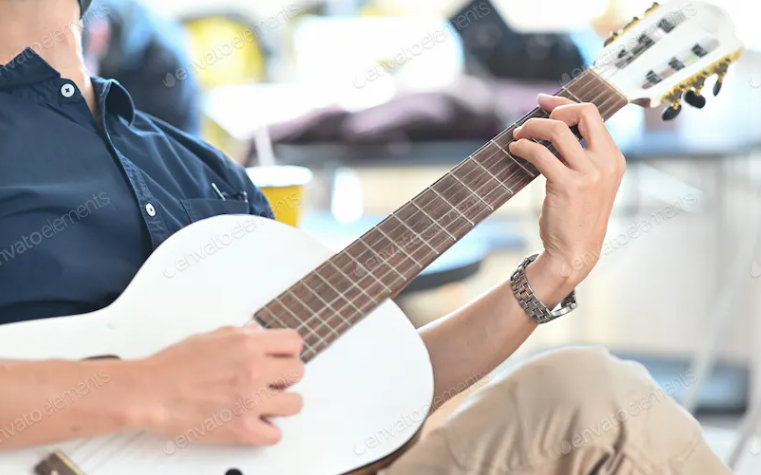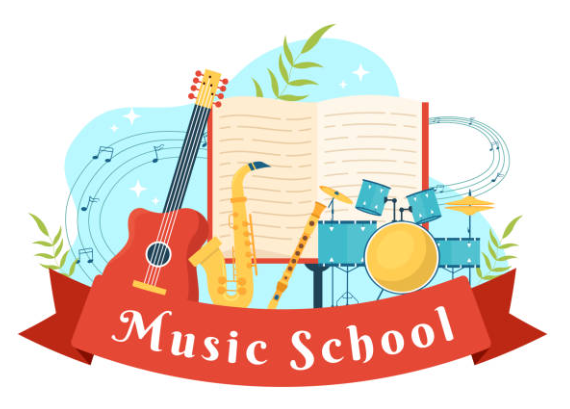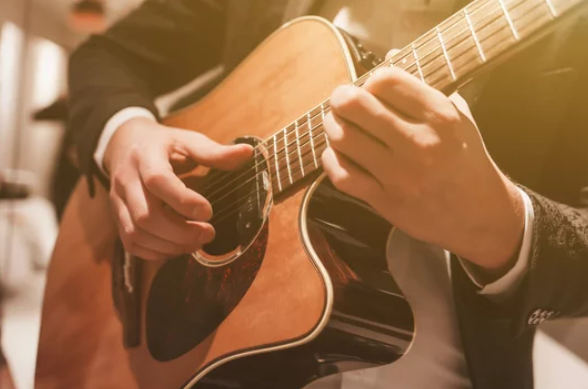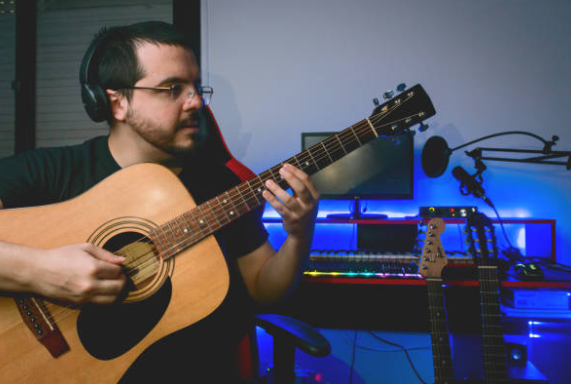How Long Does It Take to Learn Guitar?
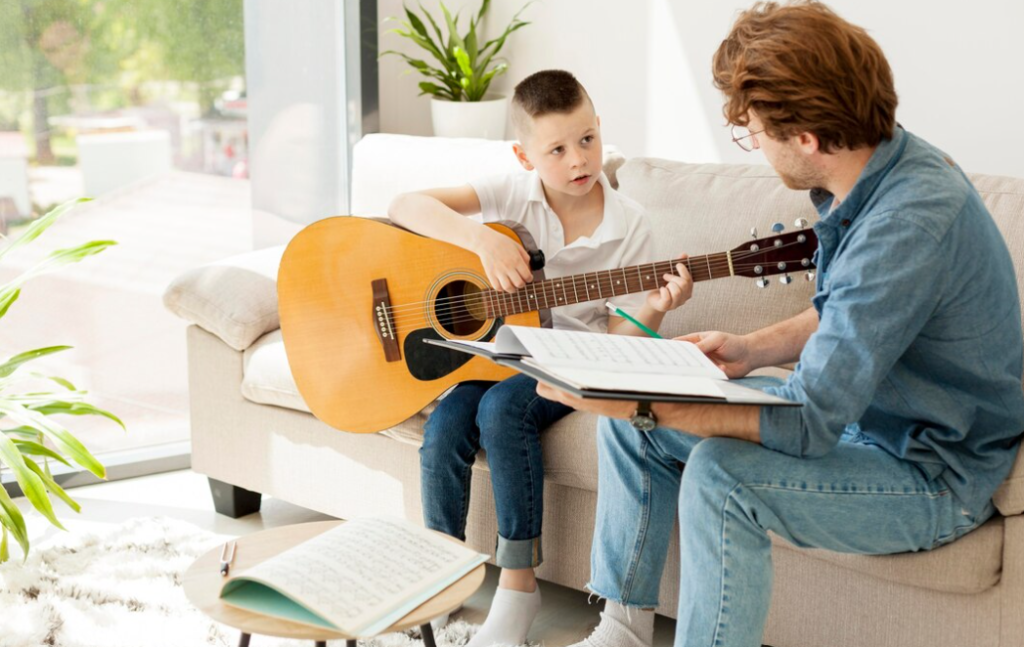
I started playing guitar a very long time ago. I can’t even believe that I am going to write a number down this large because I don’t feel this old.
I was 12 when I started playing over 36 years ago.
While I am astonished that I started playing when Ronald Reagan was president, you are probably thinking well you must be a professional by now.
I did pursue a recording career for a long time and most definitely became a professional by most standards, but depending on who you are looking at, how long it takes to learn guitar for me might be different from others.
Guitar, with its dulcet tones and captivating melodies, has captured the imagination of music enthusiasts for centuries. Many aspiring musicians wonder: “How long will it take me to learn to play the guitar?” This question, though seemingly simple, requires a nuanced answer. Let’s delve into the intricacies of learning this iconic instrument.
1. Defining ‘Learning the Guitar’
Before we discuss the timeline, we need to define what “learning the guitar” means. For some, it’s strumming a few chords to play their favorite songs around a campfire. For others, it’s mastering intricate solos or understanding complex music theory. Your goal determines the length of your learning journey.
2. The Basics: 1-3 Months
With consistent practice, most beginners can pick up the basic chords, and simple strumming patterns, and play a few simple songs within a month or three. At this stage, practice is often about building finger strength and dexterity.
3. Intermediate Level: 6 Months – 2 Years
Once you’ve grasped the basics, you’ll start to explore barre chords, fingerpicking techniques, basic scales, and more complicated songs. Many players find themselves in this phase for a considerable time, especially if they’re juggling practice with other commitments.
4. Advanced Level: 3-6 Years
At this level, guitarists begin to integrate music theory into their playing, master various playing techniques, and perhaps even venture into different genres. This stage is about refining skills, understanding the nuances of the guitar, and developing one’s unique style.
5. Mastery: 10 Years and Beyond
True mastery, where one can effortlessly play almost any genre, improvise, and perhaps even create original compositions, generally takes a decade or more. This doesn’t mean you’ll be spending ten years before you’re “good”—rather, mastery is about attaining a deep, intuitive understanding of the instrument.
Factors Influencing Your Learning Speed
- Practice Routine: Quality over quantity holds true. A focused 30-minute daily practice can be more beneficial than hours of aimless strumming.
- Instruction: A good teacher can guide you, correct your mistakes, and provide valuable insights. Consider investing in lessons, either in-person or online.
- Natural Aptitude: Some people naturally pick up instruments faster. However, dedication often outweighs raw talent in the long run.
- Previous Musical Experience: If you’ve learned another instrument or understand music theory, you may find some concepts and techniques easier to grasp.
- Resources and Tools: Utilizing books, online courses, and apps can expedite the learning process.
The Marty Schwartz and JustinGuitar Perspective
Two titans of the online guitar teaching world, Marty Schwartz and Justin Sandercoe of JustinGuitar, have revolutionized the way a guitar is taught. They break down the learning process into easily digestible chunks, blending theory with practical application.
Marty Schwartz often emphasizes the importance of playing along with songs and feeling the music, ensuring that students remain engaged and motivated. He often hints that with consistent practice, playing some of your favorite songs can be achieved in mere weeks to months.
JustinGuitar, on the other hand, offers structured lesson plans, breaking down the learning process into stages. Following his beginner’s course, one can expect to strum along to simple songs in 2-3 months. His entire curriculum, spanning beginner to advanced, can guide a student over several years.
The YouTube (At-Home Learning) Paradigm
The rise of YouTube has allowed for on-demand guitar lessons. Many budding guitarists have reported being able to play basic chords and simple songs within 3-6 months, all from following free tutorials. The key is consistency. YouTube offers flexibility, allowing learners to revisit lessons, practice at their own pace, and explore various teaching styles.
However, the challenge with YouTube is the overwhelming amount of content. For dedicated learners, curated lesson plans, like those from Schwartz or JustinGuitar, can provide a more structured learning pathway.
The Surge of Online Learning and its Pioneers
Online learning for music has seen a significant boost in recent years. Platforms and schools like Real Brave Audio have emerged as leaders in this space, offering comprehensive courses that span various instruments and skill levels.
Real Brave Audio, for instance, combines technology with personal touch, giving students the best of both worlds: the convenience of online learning and the tailored guidance that traditional lessons offer.
The growth of online learning platforms signifies a trend: digital is the future. These platforms offer interactive lessons, instant feedback, and a wealth of resources, ensuring that students remain engaged and receive a holistic learning experience.
In this digital age, the journey to guitar proficiency is at our fingertips—literally. Whether following the structured paths laid out by giants like Marty Schwartz and JustinGuitar, or charting one’s own journey with YouTube and platforms like Real Brave Audio, the guitar world is more accessible than ever. While the timeline to mastery remains subjective, one thing is clear: with dedication and the right resources, anyone can play the strings to their heart’s content.
Daniel Powers Jr, the founder of Real Brave™, serves as the chief inspiration to thousands of students in the Real Brave music instruction program. He’s also the visionary behind PracticePad™, an online platform for live one-on-one online music lessons, lesson tracking, and scheduling. Beyond his entrepreneurial pursuits, Daniel leads a non-profit organization that provides formerly homeless children with access to music education, making a profound impact on their lives. His unwavering dedication to music, innovation, and education continues to inspire individuals to reach their fullest potential while creating positive change in communities.

